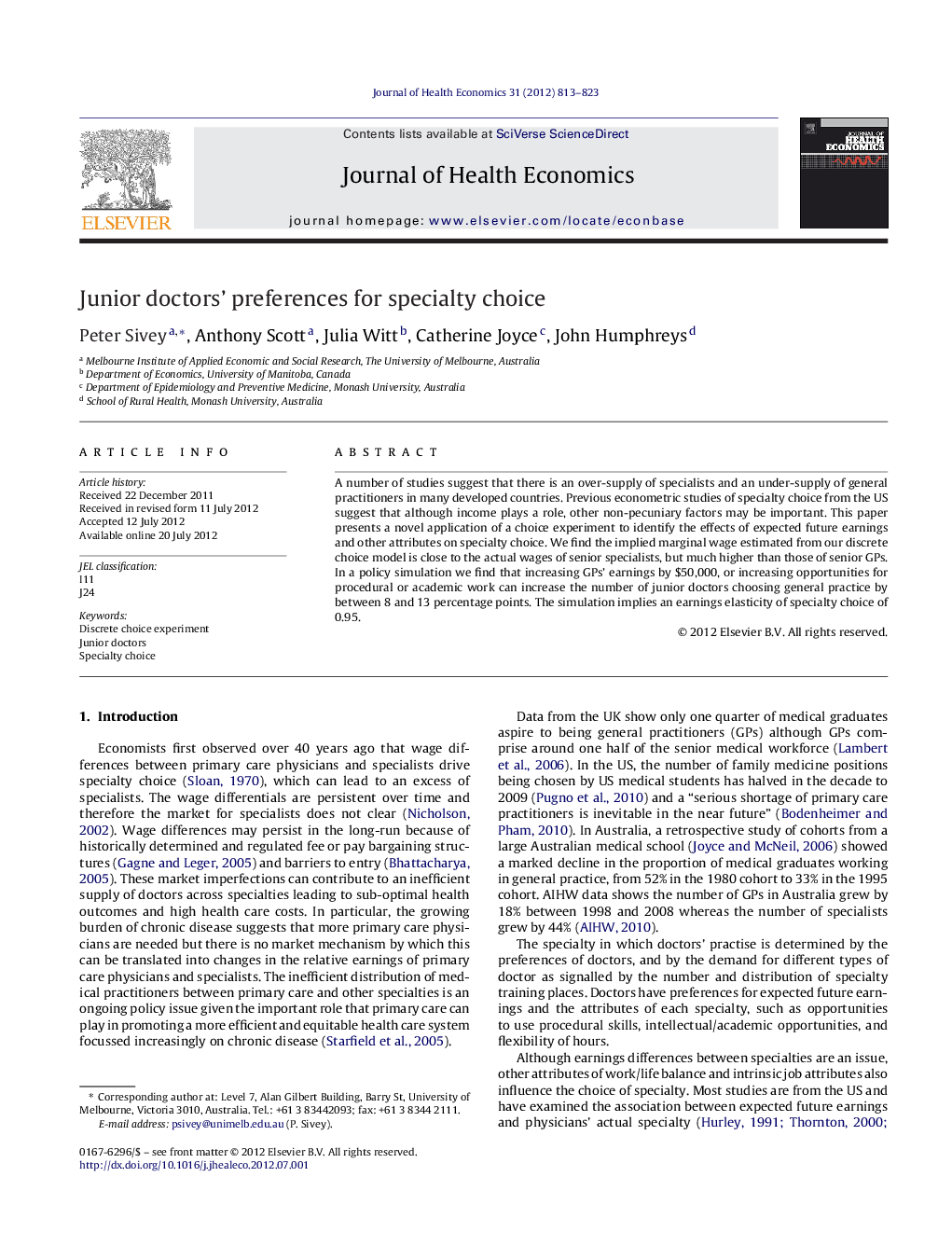| Article ID | Journal | Published Year | Pages | File Type |
|---|---|---|---|---|
| 961772 | Journal of Health Economics | 2012 | 11 Pages |
Abstract
A number of studies suggest that there is an over-supply of specialists and an under-supply of general practitioners in many developed countries. Previous econometric studies of specialty choice from the US suggest that although income plays a role, other non-pecuniary factors may be important. This paper presents a novel application of a choice experiment to identify the effects of expected future earnings and other attributes on specialty choice. We find the implied marginal wage estimated from our discrete choice model is close to the actual wages of senior specialists, but much higher than those of senior GPs. In a policy simulation we find that increasing GPs' earnings by $50,000, or increasing opportunities for procedural or academic work can increase the number of junior doctors choosing general practice by between 8 and 13 percentage points. The simulation implies an earnings elasticity of specialty choice of 0.95.
Related Topics
Health Sciences
Medicine and Dentistry
Public Health and Health Policy
Authors
Peter Sivey, Anthony Scott, Julia Witt, Catherine Joyce, John Humphreys,
